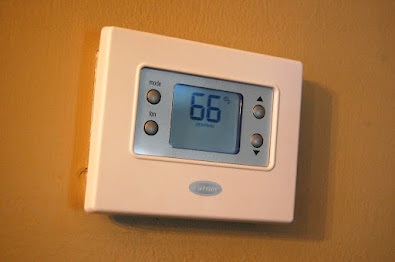The Impact of Pets on HVAC System: Top 5 HVAC Tips for Pet Owners
Owning a pet brings immense joy and companionship to our lives. Still, it also comes with some unexpected challenges, including the impact on our home's HVAC (Heating, Ventilation, and Air Conditioning) systems. From increased pet dander to fur shedding, pets can affect indoor air quality and put a strain on HVAC systems. Here, we will explore the impact of pets on HVAC systems and provide five essential tips for pet owners to ensure their heating and cooling systems function efficiently.
Five essential HVAC tips for pet owners
1. Frequent Air Filter Replacement:
One of the key concerns for pet owners is the accumulation of pet dander and fur in the air filters of HVAC systems. These filters trap particles and prevent them from circulating through the air. However, with pets in the house, filters can clog up quickly. To maintain optimal performance, it's crucial to replace air filters regularly. High-efficiency particulate air (HEPA) filters effectively capture pet dander and airborne allergens.
2. Invest in Air Purifiers:
Consider adding an air purifier to your home to complement your HVAC system. Air purifiers are made to remove particles such as pet dander, hair, and other allergens, promoting cleaner indoor air quality. To maximize its effectiveness, place the purifier in common areas where your pet spends the most time.
3. Regular HVAC Maintenance:
Pets can inadvertently introduce dirt, hair, and debris into the HVAC system, reducing efficiency and potentially causing damage. Regular professional inspection is essential for keeping your HVAC system in peak condition. Technicians can clean components, check for pet-related issues, and ensure the system runs efficiently. This preventive measure not only improves performance but also extends the lifespan of your HVAC system.
4. Control Humidity Levels:
Pet owners should pay attention to indoor humidity levels, as excessive moisture can lead to mold growth, adversely affecting the HVAC system and indoor air quality. Use a dehumidifier to obtain optimal humidity levels and prevent mold formation. Additionally, consider installing a programmable thermostat to regulate temperature and humidity, creating an ideal environment for your family and pets.
5. Seal Ducts and Vents:
Pet hair can find its way into your HVAC system through ducts and vents, compromising efficiency. Ensure that all ducts are properly sealed to prevent air leaks and the entry of contaminants. Regularly clean and vacuum vents to remove any accumulated pet hair and dust. This enhances HVAC system performance and contributes to a cleaner and healthier living space.
Conclusion:
Pets bring joy and love into our homes, but pet owners must know the potential impact on HVAC systems. By following these five tips – replacing air filters, investing in air purifiers, scheduling regular HVAC maintenance, controlling humidity levels, and sealing ducts and vents – pet owners can ensure their heating and cooling systems operate efficiently, providing a comfortable and healthy indoor environment for both their family and furry friends.




Comments
Post a Comment